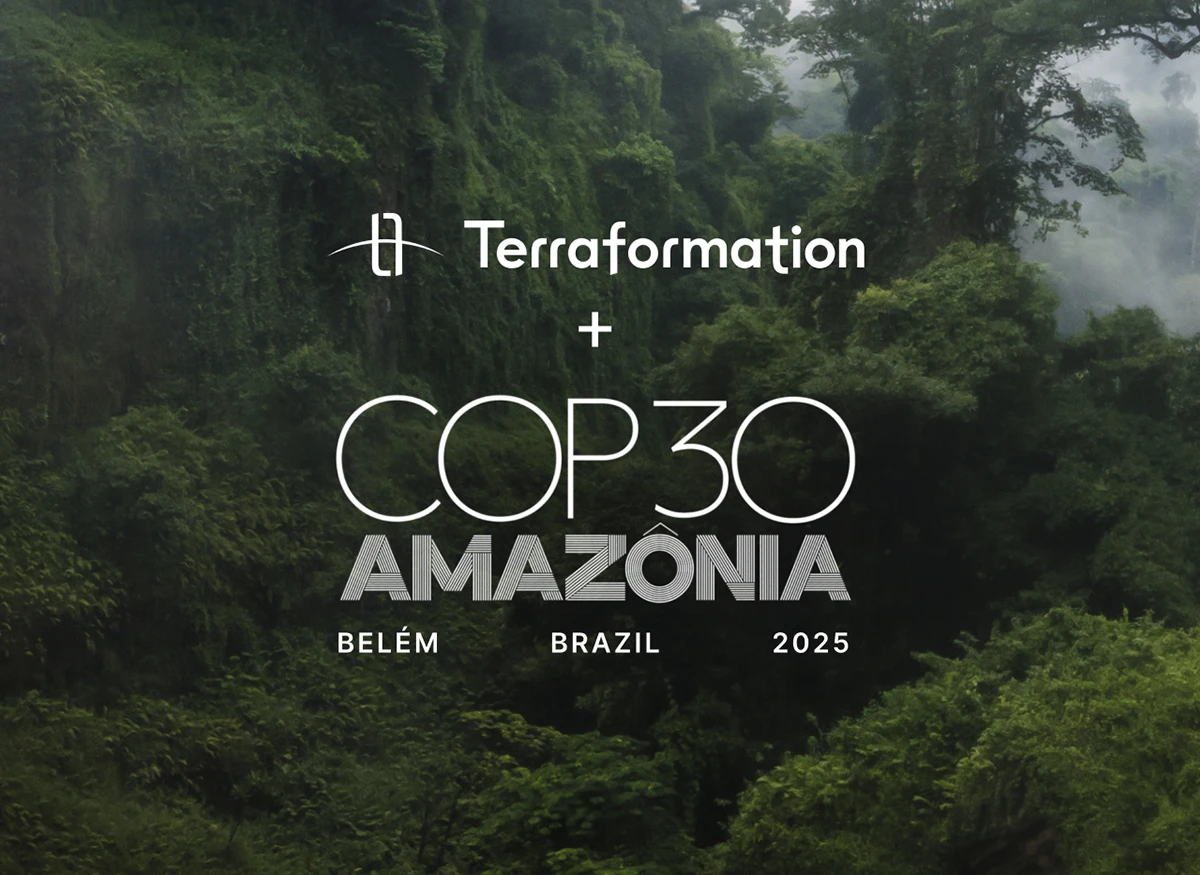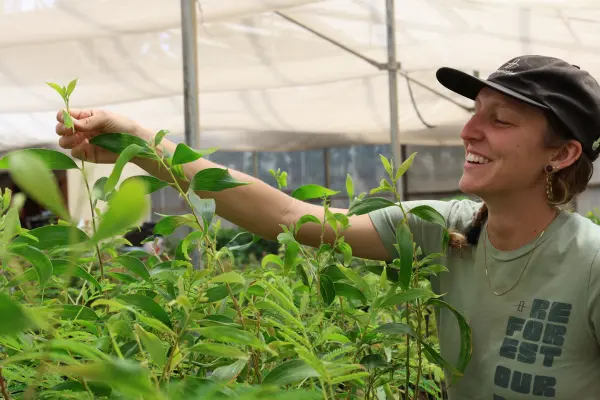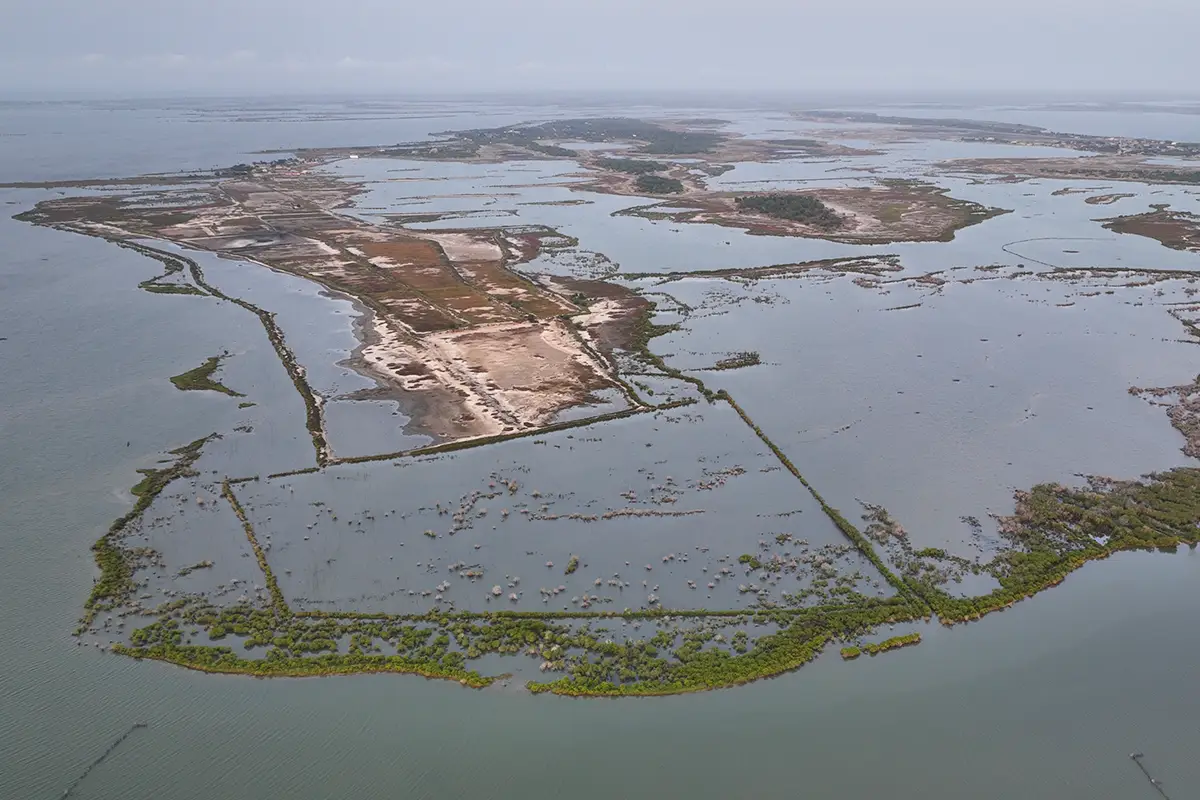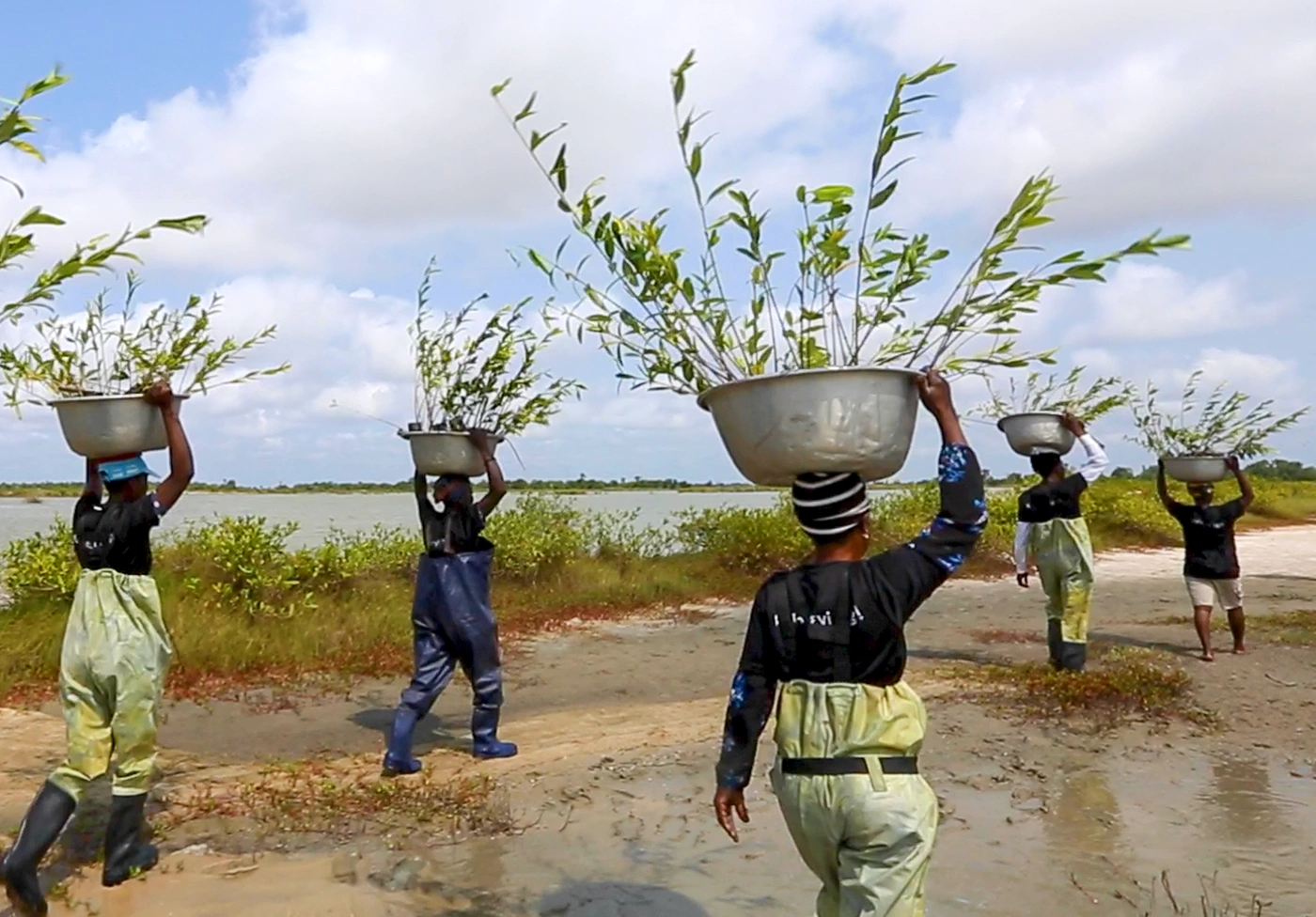Rising Tides, Rising Hopes: A Local Community Restores Their Mangroves in Ghana’s Anlo Wetlands

The far-reaching impact of mangrove loss
The Keta Lagoon region is a biodiversity hotspot, home to many endangered species of migratory birds, sea turtles, and West African manatees. Although this site in the Volta River basin was established as a protected wetland in 1992, large-scale environmental degradation has continued, especially of critical mangrove forests.
Ghana’s eastern coastal area suffers from a myriad of environmental challenges, including hyper-salinization of soils and lagoons, seawater intrusion into freshwater aquifers, and flooding of coastal communities due to erosion. Plastic pollution also encroaches, damaging habitats and reducing water quality.
In a region already beset by high unemployment rates and inadequate infrastructure, the depletion of local fish populations has harmed both livelihoods and food security, with far-reaching consequences. And because there have been no financial incentives to restore or protect the environment, including carbon initiatives for the voluntary market, the forest loss has continued unabated.

Restoring hope — and biodiversity
But the communities of the Anlo Wetlands, in partnership with Seawater Solutions and Terraformation, have mobilized to restore their mangroves and bring new hope for the future. Restoring the native mangrove forest will bring back marine biodiversity, providing renewed opportunities for income through sustainable aquaculture.
Officially the Regenerative Development of the Anlo Wetlands (ReDAW) project, this restoration work is on track to restore 2,620 hectares of native mangroves. The early project success, including a team of local foresters graduating from Terraformation's Seed to Carbon Forest Accelerator, has opened the possibility of restoring the full 9,980-hectare potential of the Keta Lagoon area.
Restoration efforts are acting as a catalyst for investment in the region, with positive impacts for financing the regeneration and conservation of the area’s many Red List endangered species.
A winner of the Great Blue Wall Challenge, this project will restore and protect natural coastal processes and systems, revitalizing damaged fisheries and improving the equitable sharing of resources within the local community.

Empowering people to create their own lasting change
Skill development opportunities for community members are a central focus of the project, with training and workshops offered regularly. The project brings employment to people with limited marketable skills.
Current team members are eager to learn all aspects of project execution, from nursery management, to planting, to monitoring techniques. In doing so, they gain confidence as well as job skills.
This is particularly apparent among the women employed by the project. Monica Monyo, a key project assistant and former Forestry Commission volunteer, has taken the role of organizing and facilitating planting activities with up to 70 community members, most of whom are also women.
By facilitating the development of restoration skills, the project aims to empower a community living on the front line of climate change. Gaining the knowledge and skills necessary to mitigate the impact to their own ecosystem will help the community become more resilient against environmental damage.
Overcoming obstacles facing Indigenous communities
Land rights are a serious obstacle faced by Indigenous community members. In the Keta Lagoon region, most Indigenous landowners have lacked the financial resources to officially register their land and gain the associated rights, making them vulnerable to exploitation.
Seawater Solutions is securing financial investment on behalf of the family clans to facilitate the validation of their land rights. This provides security for both the rightful landowners and the funders whose support is critical for this carbon project.

An experienced team’s transformative impact
The Seawater Solutions team is currently operating in 6 countries across 3 continents and has already completed a successful mangrove pilot project in Ghana. Their regional expertise has helped prepare the Anlo Wetlands community to begin planting in early 2024.
This work will set in motion the sequestration of nearly 2 million tonnes of CO2 expected over the project’s 40-year timeframe. The revitalization of community fisheries, improved water quality and flood control, and increased livelihood opportunities — particularly for women — will provide community benefits with positive impacts in both the near term and the long term.
How can you support this project?
To unlock the climate impact and local community benefits of the Anlo Wetlands native mangrove restoration project, financial commitments are needed.
Contact the Terraformation Climate Impact team to discuss how your organization’s support can assure this project’s success and contribute to your own climate goals.
















